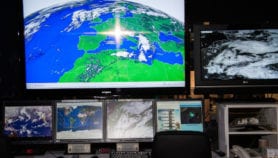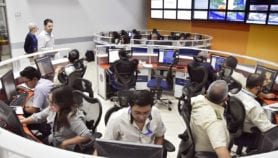Send to a friend
The details you provide on this page will not be used to send unsolicited email, and will not be sold to a 3rd party. See privacy policy.
[CAIRO] African science ministers are hoping to extend a high-speed fibre optic network — currently linking Egypt to the northern hemisphere — to other countries in Africa.
The Global Ring Network for Advanced Applications Development (GLORIAD) connects national laboratories and institutes across Canada, China, Korea, the Netherlands, Russia and the United States, enabling scientific collaboration in areas ranging from weather forecasting to high-energy physics.
Recently, Egypt, India, Singapore and Vietnam were added to the network via the ‘Taj’ expansion, officially launched at the fourth meeting of the African Ministerial Council of Science and Technology (AMCOST IV) in Egypt last week (7–10 March).
"All the ministers [at AMCOST IV] agreed that we will use the hub established in Egypt to extend the network into the African continent," said Maged Al-Sherbiny, assistant minister for scientific research in Egypt.
GLORIAD provides high volume data transfer, videoconferencing and remote control of scientific instruments, and is largely funded by the US National Science Foundation (NSF), which raised US$2.3 million for the extension to Egypt.
"This is, however, seed funding — over time, new funding mechanisms need to be established for what we hope will be 10 gigabits a second capacity through this region," Greg Cole, principal investigator of the NSF’s GLORIAD programme, told SciDev.Net.
"We want to see people use the network all over the world. We are seeking to establish an exchange point for science across the Middle East and Africa regions."
Several institutes in Egypt, including Cairo University, the Ministry of Water Resources and Irrigation, and Mubarak City for Science and Technology, are already coordinating projects with US agencies such as the National Oceanic and Atmospheric Administration and the US Agency for International Development.
"This new network will give us not only access to videoconferencing but also 3D telepresence, a more advanced technique that requires a high speed network," Amr Hussein, an independent information security specialist based in Egypt, told SciDev.Net. "Training to use new instruments by virtual reality is much needed in technology fields."
GLORIAD began in 1998 as MIRnet, a US-Russian network.













